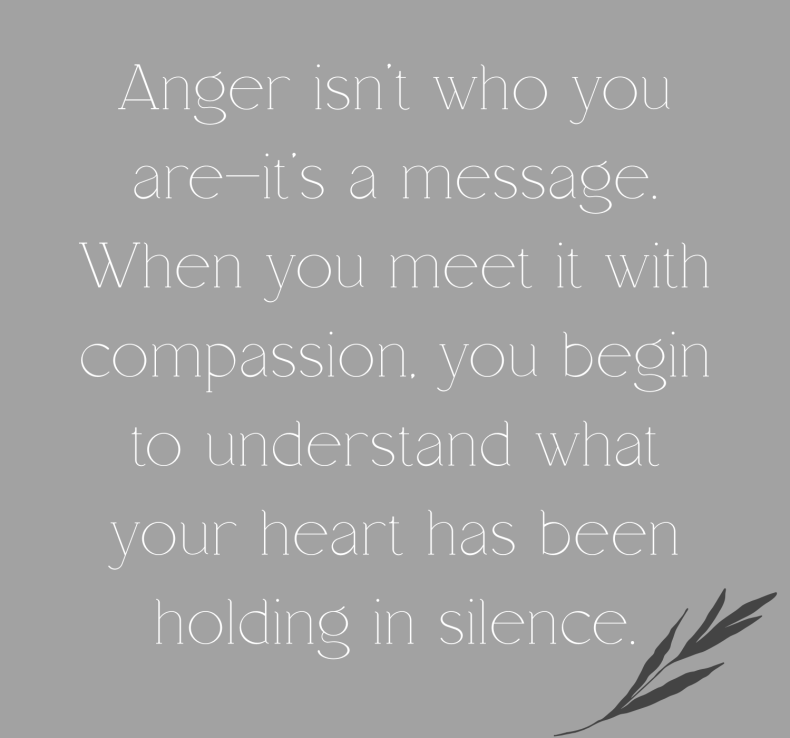20 Journal Prompts for Anger to Help You Process and Release Your Feelings
Did you know journal prompts for anger can actually help you understand and process your feelings?
There was a time I believed anger made me a bad person. I feel like we’ve been taught to hide it, silence it, or swallow it down. But all that really did was make it louder in other ways—through my anxiety, my burnout, and the quiet ways I disconnected from myself.
But the truth is: unprocessed anger doesn’t just go away. It finds other outlets—often through your mental health or sense of identity. Emotional avoidance doesn’t protect you but actually slowly erodes your wellbeing… or drives you crazy.
What I’ve come to realize is this: anger isn’t the enemy—it’s a signal. It shows up when something matters, when a need goes unmet, when a boundary has been crossed. And when we stop running from it and start listening, it has so much to teach us.
This post is here to help you do just that—not to judge your anger, but to get curious about it. These 20 journal prompts will guide you inward, helping you understand what your anger is really trying to say, and how you can begin caring for yourself with more honesty and compassion.

IN THIS ARTICLE
20 Journal Prompts for Anger to Help You Process and Release Your Feelings
Use these journal prompts as a space to breathe, reflect, and reconnect with the parts of you that may feel unheard or overlooked.
1. When was the last time I felt angry—and what was really bothering me beneath the surface?
2. What boundary might have been crossed when I felt that anger?
3. If I could say anything without fear of judgment, what would my anger want to say?
4. What unmet need is my anger trying to point out?
5. What does anger feel like in my body? Where do I hold it?
6. What do I usually do when I feel angry—explode, shut down, avoid?
7. Who in my life makes me feel like I’m not allowed to be angry? Why?
8. What messages did I receive about anger as a child, especially as a girl or woman?
9. Have I ever apologized for feeling angry, even when it was justified? Why?
10. Do I feel guilty when I express anger? Where does that guilt come from?
11. What is my anger trying to protect me from?
12. Is my anger hiding sadness, grief, or fear underneath?
13. How does anger show up when I feel unsupported or unseen?
14. What values of mine are being threatened when I feel anger rising?
15. What role does people-pleasing play in my relationship with anger?
16. When have I felt empowered by my anger, rather than ashamed of it?
17. What parts of myself do I silence to keep the peace?
18. How would it feel to express my anger in a healthy, honest way?
19. What would it look like to honour what I need instead of ignoring it?
20. What is one small boundary I can strengthen this week to protect my peace?
Why Understanding Anger Is Part of Self-Care
Anger isn’t inherently negative—it’s a signal. It tells you when something matters to you or when something inside feels threatened or unfulfilled. But we’ve often been taught to suppress it or label it as wrong, fearing it will make us seem unloving, immature, or out of control.
However, pushing anger down only disconnects us from ourselves. This emotional suppression can lead to stress, anxiety, or even physical issues like tension or illness. By avoiding anger, we avoid confronting our true feelings and what’s really going on inside. Anger reveals where we feel unsafe, unheard, or disrespected—and shows us where we need to set boundaries or ask for change.
When we embrace and understand our anger—through practices like journaling—we can better recognize what we truly need to feel whole, respected, and at peace. This process ultimately helps us build healthier relationships with ourselves and others.
In short, anger isn’t the enemy; by acknowledging it head on, we can begin to heal, find clarity, and create a deeper connection to our authentic selves.

If you’re feeling burned out, overwhelmed, or disconnected from yourself, consider this your sign to pause and check in. Your anger is a clue—not a flaw. You might also find comfort in 9 Ways to Immediately Simplify Your Life for Burnout Relief, a gentle guide to help you release the pressure and make more space for yourself.
Ready to Go Deeper?
If you’re feeling burned out, overwhelmed, or disconnected from yourself, consider this your sign to pause and check in. Your anger is a clue—not a flaw. These journal prompts are a gentle way back to your inner voice, your boundaries, and the truth to why you’re feeling angry.
Save this post for your next journaling session—or share it with someone who needs to hear that their anger matters too.
References
cover photo by Simran Sood on Unsplash.
Discover more from The Unscripted Femme
Subscribe to get the latest posts sent to your email.
